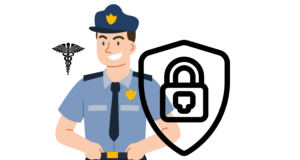HIPAA Privacy Officer
A HIPAA privacy officer–sometimes called a chief privacy officer (CPO)–oversees the development, implementation, maintenance of, and adherence to privacy policies and procedures regarding the safe use and handling of protected health information (PHI) in compliance with federal and state HIPAA regulation. What is a HIPAA Compliance Officer?
The HIPAA Security Rule mandates that every practice or health care organization that creates, stores, or transmits ePHI, must designate a privacy compliance officer regardless of their size. In larger firms there will typically be a dedicated HIPAA privacy officer, however in smaller firms the role might fall on an employee with administrative or IT responsibilities as well. Below, we’ve outlined some of the key features of the role of a HIPAA privacy officer, along with what they should be expected to know when it comes to maintaining HIPAA compliance.
HIPAA Privacy Officer Duties and Responsibilities:
Privacy Oversight Committee
A Privacy Oversight Committee is primarily responsible for overseeing the maintenance of the privacy and integrity of a firm’s PHI. Subcommittees should be formed among the members of the privacy oversight committee to specifically handle risk, safety, quality, compliance, and audits, with one steering committee to coordinate responsibilities between all of them. Committees should be assembled with a few key points in mind:
- Specific oversight roles should be assigned to each member of the steering committee. The steering committee’s primary responsibility should be maintaining oversight of the privacy and security measures being carried out by the various subcommittees.
- Monitoring privacy and information security should be assigned to one of the subcommittees.
- Committee members must undergo regular training to keep informed of changes to federal and state HIPAA regulation so that solutions can be incorporated into privacy policies and procedures.
Notice of Privacy Practices (NPP)
The HIPAA Privacy Rule requires Covered Entities (CEs) to develop and distribute or post an NPP that provides clear explanations of patients’ rights in regards to how their PHI is handled, as well as the CE’s overall privacy practices. A HIPAA chief privacy officer is responsible for maintaining an updated NPP to reflect changes in regulatory requirements or procedures at the firm in order to avoid most common HIPAA violations.
Business Associate Agreements
A Business Associate Agreement (BAA) is a written agreement between a CE and a Business Associate (BA) which states that both sides will do all they can to maintain the safety and integrity of PHI along with provisions that determine which kinds of PHI will be handled by the BA. It is the HIPAA compliance privacy officer’s responsibility to keep BAAs thorough and up to date.
Other HIPAA Privacy Officer Responsibilities Include:
- Establish, coordinate, and lead the Privacy Oversight Committee.
- Perform privacy risk assessments and related compliance monitoring initiatives.
- Ensure that the CE maintains appropriate privacy and confidentiality consent, authorization forms, and information notices and materials that reflect the CE’s policies and regulatory requirements.
- Oversee, direct, and deliver privacy training and orientation to all employees.
- Create and monitor BAAs to ensure that all BAs are maintaining privacy requirements and responsibilities.
- Establish a procedure to track access to PHI so that it can be reviewed during audits.
- Implement a process for receiving, documenting, tracking, investigating, and acting on all complaints concerning breaches in privacy policies and procedures.
- Ensure that all employees are acting in total compliance with privacy policies and procedures and deploy sanctions in the event of a breach.
- Work with all personnel involved in the release of PHI to ensure full coordination and cooperation under policies and procedures and federal HIPAA regulation.
- Maintain up-to-date knowledge of federal and state privacy laws and HIPAA regulations to ensure organizational compliance.





